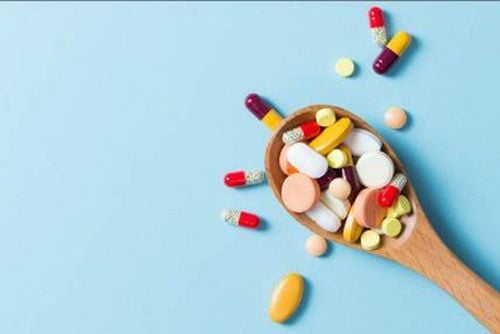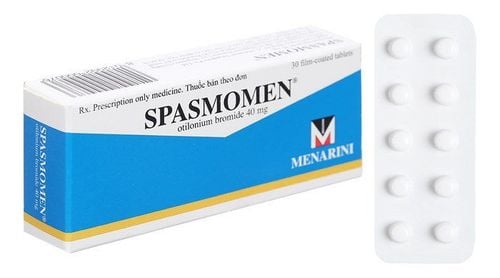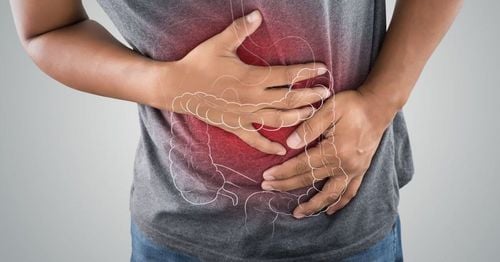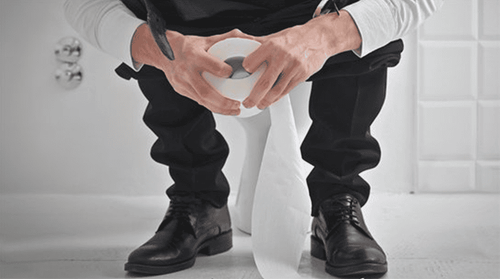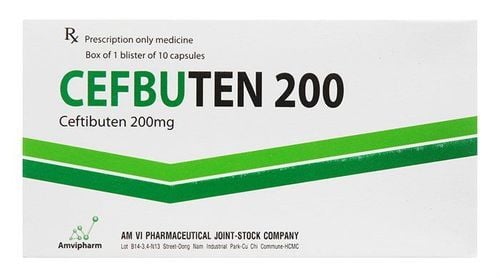This is an automatically translated article.
Colitis (UC) is a disease that causes inflammation in the large intestine. Ulcerative colitis is usually most severe in the rectal area, which can cause frequent diarrhea...So what to do when you have ulcerative colitis? Read more below for effective treatment for inflammatory bowel disease and ulcerative colitis.
1. What is inflammatory bowel disease?
Colitis or ulcerative colitis also known as UC is a chronic autoimmune disease that causes inflammation of the colon (that's the inflammatory part of the colon) and rectum. That inflammation leads to ulcers, or open sores, in the lining of the intestines that can bleed or ooze pus and mucus. Along with that may appear other symptoms such as severe and frequent and painful diarrhea. You may also hear the term "colitis," but know that ulcerative colitis and "colitis" alone are very different things. Colitis is a short-term inflammation of the colon, whereas ulcerative colitis is a more serious chronic disease.
UC is one of the two main types of inflammatory bowel disease (IBD). Crohn's disease is another. While Crohn's and UC are similar, there are some key differences - the main point being that UC is often associated with localized inflammation in the large intestine, while Crohn's can affect any part of the digestive tract.
* What is happening inside your body when you have UC?
Let's start with the immune system. A healthy immune system protects the body from invaders, like bacteria and viruses, by triggering temporary inflammation (known as the "immune response") to help fight them off. Once the infection is cleared, the inflammation usually goes away.
But that's not how things go down with UC. Instead, the immune system doesn't get the message that the fight is over, so inflammation levels remain high - and healthy tissue becomes secondary damage. In the case of UC, the lining of the colon and rectum becomes misdirected targets. However, this type of chronic inflammation can eventually lead to symptoms throughout the body.
* Symptoms:
One of the most common symptoms of UC is probably also the most frightening: seeing blood in your stool. Blood may also be seen with simple inflammation because the lining of the colon becomes friable and bleeds easily. This can happen before sores develop. You may also have diarrhea that doesn't go away even after 3-5 days, persistent abdominal pain (ranging from cramping and cramping to sharp pain), or frequent urges to go away on its own even though there's not much to do about it.
UC symptoms can range from mild to severe and your doctor will take all symptoms into account when evaluating your case. Here are some key symptoms to watch for:
Blood or pus in your stool (It can be bright red, pink, or almost black.) Frequent, persistent diarrhea (Those with moderate illness) you may have a bowel movement 4 to 6 times a day because your inflamed colon can't process food properly.) Tenesmus (It's a sudden and frequent feeling that you need to have a bowel movement, but nothing happens. when you try to have a bowel movement.) Abdominal pain or discomfort (It may feel like a tight squeeze, cramping, or pain in the lower left abdomen.) Weight loss (Because much of what you're eating isn't being absorbed. into your body.) Fever (It's usually persistent but mild; chronic inflammation can literally raise your body temperature.) Fatigue Decreased appetite Also good to know : Systemic inflammation from UC can also cause non-digestive symptoms, including anemia (due to blood loss), eye and skin problems such as skin ulcers, and even arthritis-like joint pain.
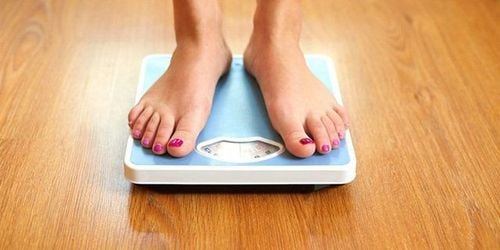
Giảm cân là một trong các triệu chứng của bệnh viêm ruột kết
2. What to do when you have ulcerative colitis?
The main goal of UC treatment is to stop the inflammation and reduce your symptoms hopefully to the point of remission (meaning you have few symptoms, if any). But how exactly your UC is treated depends on the severity of the disease. Your glycemic index panel will recommend different approaches based on whether your UC is mild, moderate, or severe.
You're probably on the mild side if you have fewer than four bowel movements a day and only have mild cramping. On the other hand, severe illness may have more than six bowel movements per day and more severe abdominal pain.
Treatment options include medication and, in severe cases, surgery - along with some lifestyle changes.
2.1. Aminosalicylate (5-ASA) is used to treat ulcerative colitis. This class of drugs, which includes mesalamine, helps reduce inflammation in your intestines. If your UC is mild to moderate, your doctor may consider this option for you. These medications can be taken daily as an oral tablet or as a rectal suppository, depending on the location of the symptoms you want to target (for example, suppositories may work especially well if you are suffering from a condition called rectal bleeding). inflammation mainly in the rectum, not your colon).
Steroids. Steroids can help reduce inflammation throughout the body. They can be given orally, rectally, intravenously, or by injection. Because they come with a high risk of side effects, steroids are a short-term treatment option, usually only prescribed if you're in a flare-up to quickly control moderate to severe inflammation.
Immunomodulators: These immune system-modulating drugs are taken as daily pills or weekly injections and help reduce the body's immune response, thus preventing further inflammation. Sometimes your doctor will prescribe a short course of steroids along with immunomodulators, as immunomodulators can take several months to take effect.
Biologic drugs that target important proteins in the immune system that are involved in inflammation, going straight to your UC source. According to a study in the journal Gut and Liver, these drugs are often prescribed for moderate to severe cases of UC and can help you treat or maintain remission. They are given as a self-injection, usually every two to four weeks, or through an IV at a healthcare provider's office every two to eight weeks.
Your doctor may also recommend certain over-the-counter (OTC) medications, including pain relievers and anti-diarrheals, along with supplements to help combat any nutritional deficiencies that you have because of your UC, like iron or vitamin D.
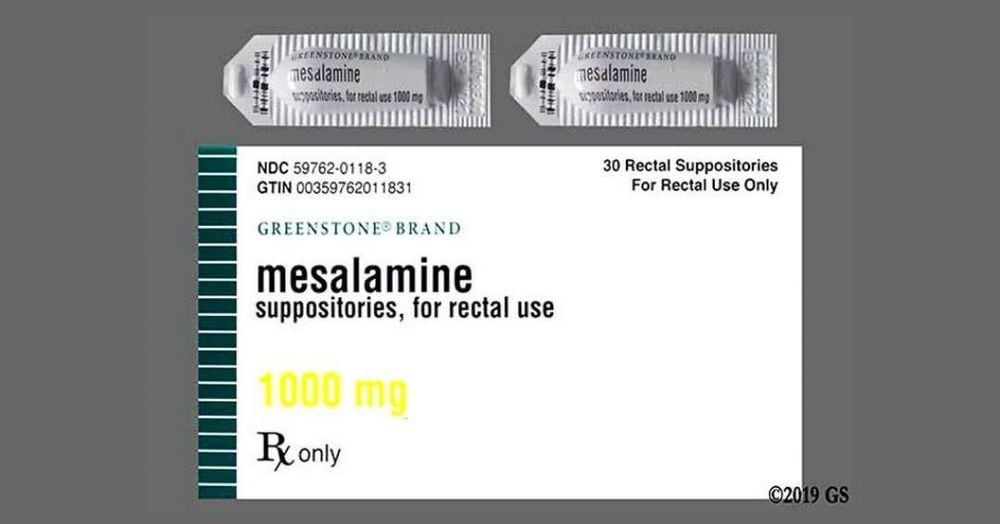
Mesalamine là một trong các loại thuốc điều trị bệnh viêm ruột kết
2.2. Surgery for ulcerative colitis Surgery is not so common for people with UC these days, thanks to newer drugs that are effective even for severe UC. That said, there are some circumstances when surgery should be considered, such as when your UC doesn't respond to medication or has complications, such as uncontrolled bleeding or a perforated colon. .
Usually, surgery for severe UC is a colectomy, which includes removal of the colon and rectum. We know this sounds drastic, but many people actually regain their lives after these procedures. There are two main versions of the surgery:
J-pouch: This procedure involves creating a pouch inside your body to replace some of the function of the large intestine that was removed. It's made from part of your small intestine and is connected to your anus, so when you heal, you'll be able to go to the bathroom as usual. Anal bag: This type will require wearing an external bag (called an anal bag) to collect waste moving forward. This latter option may sound particularly daunting - and while it's certainly a big adjustment, know that it's entirely possible to live a happy, active life with an ostomy. It's important to know that while surgery can prevent many of your UC symptoms, some problems may persist even after this surgery, including complications such as pouchitis (when the pouch Your J has inflammation
2.3 Lifestyle changes that can help You can also find relief by making changes to your daily life, including physical activity, diet, etc. following:
Exercise Research has shown that physical activity can be of great help to people with UC, helping to boost the immune system, reduce inflammation and reduce stress. is very important for people with UC, who may already be struggling with fatigue due to anemia and other symptoms.If you are struggling with getting enough rest, manage your digestive symptoms. There is no specific "ulcerative colitis diet." That said, you may find that certain foods trigger symptoms. your UC symptoms more than others. Common culprits include high-fat foods, sugary foods, and foods containing insoluble fiber. Food journaling can help you identify them. Work with your doctor or a dietitian to find an eating plan that's right for you. Mental health. Living with a chronic illness like UC increases your risk of mental health problems, like depression and anxiety. You might consider seeing a therapist to help guide you through the stresses of UC.
3. What triggers ulcerative colitis?
One of the most annoying things about UC is that it's unpredictable. But understanding your disease and identifying specific triggers can help you take control of your life and reduce flare-ups. While everyone is different, here are some things that can worsen UC symptoms:
Do not take your UC medication as directed (Skipping a dose may lead to an increase in symptoms or a decrease in effectiveness. effects.) Taking nonsteroidal anti-inflammatory drugs (NSAIDs), such as aspirin, ibuprofen, and naproxen, can irritate your digestive tract. Stress, which triggers the release of cortisol and adrenaline, can increase inflammation Smoking , another big cause of inflammation in the body (and more than that it's something you don't need) Eat certain foods (Keep a food/symptom diary and work with a professional to figure it out) foods that cause you pain) Take antibiotics, which can clear your gut of healthy bacteria (Talk to your doctor before you take any antibiotics they may recommend take anti-diarrheal medications to help combat any problems.)

Ăn một số loại thực phẩm có thể khiến viêm loét ruột trầm trọng hơn
4. Prevention of complications
Common complications of UC include:
Rectal bleeding, which can lead to anemia Perforated colon, a dangerous condition where the large intestine ruptures Increased risk of colon cancer; Chronic inflammation can increase the growth of cancer cells. Depending on how long you have had UC symptoms, you may need more frequent colonoscopy to screen for this cancer, according to a study in Clinical Endoscopy. Lack of vitamins and minerals such as iron, calcium and vitamins. These deficiencies can lead to things like anemia and bone loss in the form of osteopenia or osteoporosis. Inflammation throughout the body, such as the eyes, skin, and joints. This can lead to things like dry eyes, rashes, and arthritis. * What do you need to do?
While there is no known way to keep you from getting UC, following the healthy lifestyle habits we mentioned above can help you prevent complications and feel better about your health. overall. Cheat Sheets:
Follow your treatment plan, including taking your medication as prescribed and following up with regular checkups with your glycemic index Eat a healthy diet. The low-FODMAPs diet, for example, can improve gas, bloating, and some types of colic/discomfort. Exercise regularly . Prioritize your mental and emotional health. Life with UC varies from person to person depending on your specific disease and symptoms. But it's not uncommon for people to battle with daily digestive issues, fatigue, etc. You may also have to deal with people who don't really understand your condition and can't fully understand what you're going through, as you may appear perfectly healthy on the surface.
But as you adjust to life with UC, you'll learn more and more ways to make your life easier - whether it's sitting on a chair in the aisle watching a movie so you can get there quickly. restroom, avoid irritating foods, or incorporate a self-care routine during flare-ups.
But if you don't understand anything about ulcerative colitis, or you are exhausted and in constant pain. Get medical help.
Please dial HOTLINE for more information or register for an appointment HERE. Download MyVinmec app to make appointments faster and to manage your bookings easily.
References: webmd.com, medicinenet.com, healthcentral.com




